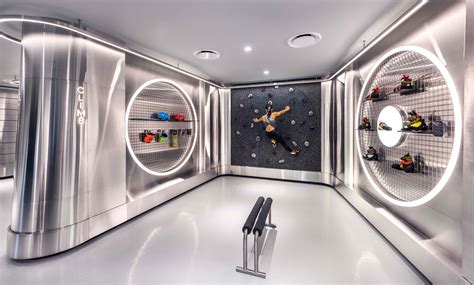体育用品商店英文怎么说
Exploring the World of Outdoor Sporting Goods Stores
An outdoor sporting goods store is a haven for adventure enthusiasts, fitness buffs, and nature lovers alike. These stores cater to a wide range of activities, from hiking and camping to fishing, cycling, and beyond. Let's dive into what makes these stores tick and explore some tips for running a successful outdoor sporting goods business.
Understanding Your Market
1. Target Audience:
Identify your primary customer base. Are you catering to avid hikers, anglers, cyclists, or a mix of outdoor enthusiasts?2. Local Demographics:
Consider the demographics of your area. Are there specific outdoor activities that are particularly popular among residents?3. Seasonal Trends:
Understand the seasonal nature of outdoor sports. Tailor your inventory and marketing efforts accordingly.Product Selection
1. Quality Brands:
Stock reputable brands known for their durability and performance in outdoor settings.2. Diverse Range:
Offer a diverse range of products, including apparel, footwear, equipment, and accessories for various outdoor activities.3. Sustainable Options:
Consider including ecofriendly and sustainable products to appeal to environmentally conscious customers.Store Layout and Design
1. Accessibility:
Ensure your store layout allows easy navigation and accessibility for customers, including those with disabilities.2. Displays:
Create attractive displays that showcase your products and inspire customers to explore.3. Interactive Elements:
Incorporate interactive elements like gear testing areas or virtual reality experiences to enhance the shopping experience.Customer Experience
1. Knowledgeable Staff:
Train your staff to be knowledgeable about outdoor gear and able to provide expert advice to customers.2. Customer Service:
Focus on excellent customer service, including easy returns, warranties, and assistance with product selection.3. Community Engagement:
Foster a sense of community by hosting workshops, events, or outdoor outings for customers.Marketing and Promotion
1. Online Presence:
Maintain a strong online presence with a userfriendly website, social media engagement, and ecommerce capabilities.2. Seasonal Promotions:
Offer seasonal promotions, discounts, and bundles to attract customers during peak seasons.3. Partnerships:
Collaborate with local outdoor clubs, influencers, or organizations to reach a wider audience and build credibility.Sustainability Initiatives
1. Recycling Programs:
Implement recycling programs for old gear and promote sustainable practices among customers.2. EcoFriendly Packaging:
Use ecofriendly packaging materials and encourage customers to reduce waste.3. Education:
Educate customers about Leave No Trace principles and responsible outdoor practices.
Financial Management
1. Inventory Management:
Keep track of inventory levels and popular items to avoid stockouts and optimize sales.2. Budgeting:
Maintain a balanced budget, accounting for overhead costs, marketing expenses, and potential fluctuations in demand.3. Pricing Strategy:
Develop a competitive pricing strategy based on market research and competitor analysis.Conclusion
Running a successful outdoor sporting goods store requires a deep understanding of your target market, a diverse and quality product selection, excellent customer service, and a commitment to sustainability. By focusing on these key areas, you can create a thriving business that caters to the adventurous spirit in all of us.
体育资讯
MORE>-
02-23少女花150元文身,清洗需76.9万元
-
02-23哪吒周边市场惊现盗版,商家获利200万元
-
02-23一场激情与实力的碰撞——预测与故事
-
02-23美国将完全退出联合国?联合国回应
-
02-23特朗普撤换美军最高将领,影响与后果
-
02-23俄罗斯与比利时实力对比与前景展望
-
02-22历史对决,实力较量——一场激情与智慧的足球盛宴
-
02-22欧洲杯积分榜——最新赛况与分析
-
02-22世界级对决,谁能笑到最后?
-
02-21瑞士VS威尔士,竞技与友谊的交织之旅
-
02-21房价止跌回稳,一线城市房价将保持稳定
-
02-21征服哥本哈根,曼彻斯特城在英超联赛中的实力与决心
-
02-21员工偷换理发店收款码3年窃取189万,道德沦丧还是管理漏洞?
-
02-21国产剧告别假穷人,真实主义的胜利
-
02-21布鲁日 vs 马竞——引言与引子碰撞的精彩时刻
- 搜索
- 最近发表
-
- 春回大地农事起 春耕备耕正当时
- 少女花150元文身,清洗需76.9万元
- 一届震撼人心的全明星赛——2012年NBA全明星录像回顾与解读
- 老师一堂课没收几十个裂空爪
- 法国在国际足坛的荣耀新篇章,从欧洲最后堡垒的黯淡到王者归来
- 内地版萧亚轩——张雨绮
- 从NBA全明星赛录像,解读2023年扣人心弦的赛事
- 外卖小哥的感激之情
- 超级巨星云集,美国足球联赛的燃情较量即将上演!
- 农文旅融合绘就美丽乡村新图景
- 史诗般的半决赛之旅,不容错过的精彩瞬间
- 哪吒周边市场惊现盗版,商家获利200万元
- 一场激情与实力的碰撞——预测与故事
- 美国将完全退出联合国?联合国回应
- 梦幻十一人,解读巴塞罗那最佳阵容,定义卓越表现与潜力展示
- 特朗普撤换美军最高将领,影响与后果
- 西方世界视角下的袁隆平,一位影响深远的中国科学家
- 小因扎吉引领国际米兰新篇章,深度解析与实用建议
- 俄罗斯与比利时实力对比与前景展望
- 孙莉再战大银幕,女神归来的魅力依然闪耀,唐诗三百首的全新演绎
- 标签列表
-
- 欧洲杯 (9)
- 欧洲杯都有哪些球队参加 (13)
- 2024欧洲杯比赛时间 (14)
- 2024欧洲杯百度百科 (18)
- 2024年欧洲杯预选赛 (15)
- 欧洲杯为什么不是2020 (8)
- 欧洲杯如何竞猜 (9)
- 欧洲杯小组赛怎么分组 (11)
- 欧洲杯2024在哪个国家 (9)
- 欧洲杯比赛时间表 (8)
- 在哪里可以看欧洲杯预选赛 (11)
- 欧洲杯在哪个国家举行2024 (10)
- 2024欧洲杯主办城市 (16)
- 欧洲杯为什么没有中国 (12)
- 欧洲杯哪个球队身价最高 (9)
- 欧洲杯多少支球队参加 (11)
- 欧洲杯共多少场比赛 (11)
- 欧洲杯的球队有哪些 (9)
- 欧洲杯为什么没有直播 (9)
- 欧洲杯参赛球队有几支 (15)
- 欧洲杯一共多少球队 (11)
- 咪咕视频体育直播 (12)
- 世界杯亚洲区预选赛 (9)
- 直播吧 (14)
- 直播间买翡翠原石被骗 (9)





